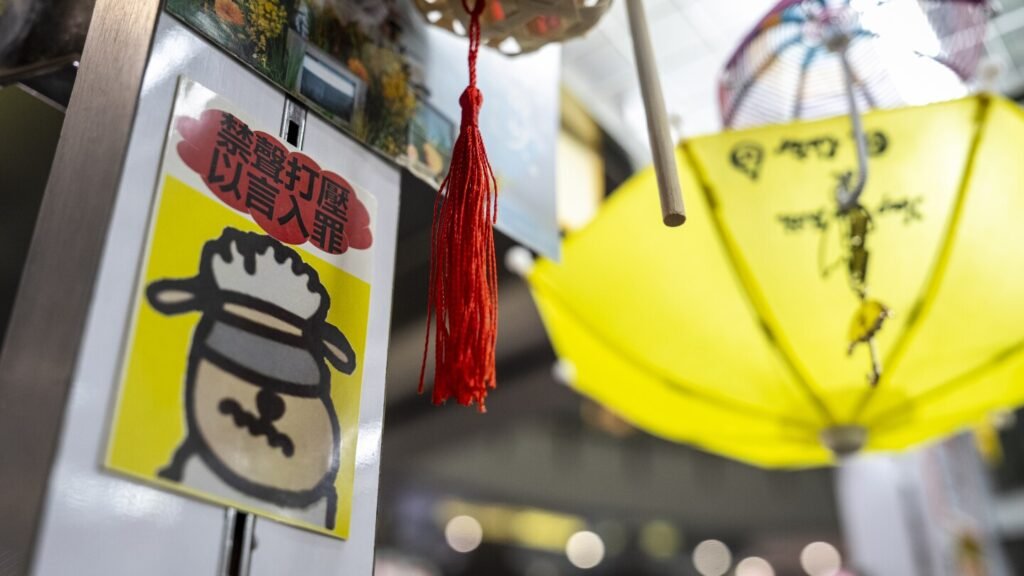HONG KONG (news agencies) — It’s been years since mass arrests all but silenced pro-democracy activism in Hong Kong. But a crackdown on dissent in the semiautonomous Chinese city is still expanding, hitting restaurants, bookstores and other small businesses.
Shops and eateries owned by people once associated with the largely subdued pro-democracy movement are feeling a tightening grip through increased official inspections, anonymous complaint letters and other regulatory checks.
Those critical of the city’s political changes say it’s a less visible side of a push to silence dissent that began five years ago when Beijing imposed a national security law to crush challenges to its rule, under which opposition politicians were jailed and pro-democracy newspaper Apple Daily was shuttered.
China said the law was necessary for the city’s stability following anti-government protests in 2019.
In 2024, the city passed its own national security law, which has been used to jail people for actions like writing pro-independence messages on the back of bus seats and wearing a T-shirt carrying a protest slogan that authorities deemed could imply the separation of Hong Kong from China, a red line for Beijing.
In recent weeks, food authorities sent letters to restaurants warning that their business licenses could be revoked if the government deems them to be endangering national security or public interest.
Leticia Wong, a former pro-democracy district councilor who now runs a bookstore, says her shop is frequently visited by food and hygiene inspectors, the fire department or other authorities over complaints about issues like hosting events without a license. It happens most often around June 4, the anniversary of the 1989 Tiananmen Square massacre.
Her records show government authorities took measures against her shop some 92 times between July 2022 and June 2025, including inspecting her shop, conspicuously patrolling outside, or sending letters warning her of violations. She has been studying regulations to protect herself from accidentally breaking them.
“Some areas look trivial — and they really are — but they still have the power to make you face consequences,” she said.
In an emailed reply to media, the fire department said it conducted checks at Wong’s business following multiple complaints this year. Wong’s bookstore passed most of them but still faces enforcement action for failing to provide valid certificates for two fire extinguishers and its emergency lighting system, it said.
Other small business owners described similar experiences.
A bakery that put up pro-democracy decorations during the 2019 protests saw food authorities’ inspections jump from quarterly to monthly over the past one to two years, mostly over labeling complaints. Its owner, who asked to remain anonymous fearing government retribution, said the frequent inspections made running the business a struggle.
A restaurant owner who received the notice of the newly added terms on possible license revocation over national security violations said he doesn’t know what could be considered a violation and fears one wrong move could cost his staff their jobs. He spoke on the condition of anonymity, fearing potential impact on his business partners and employees.
Food authorities said inspections follow the law, information and public complaints. They maintained that the new national security conditions for food business licenses were clearly defined and would not affect law-abiding operators.
The Hong Kong Chief Executive’s office has not immediately commented.
